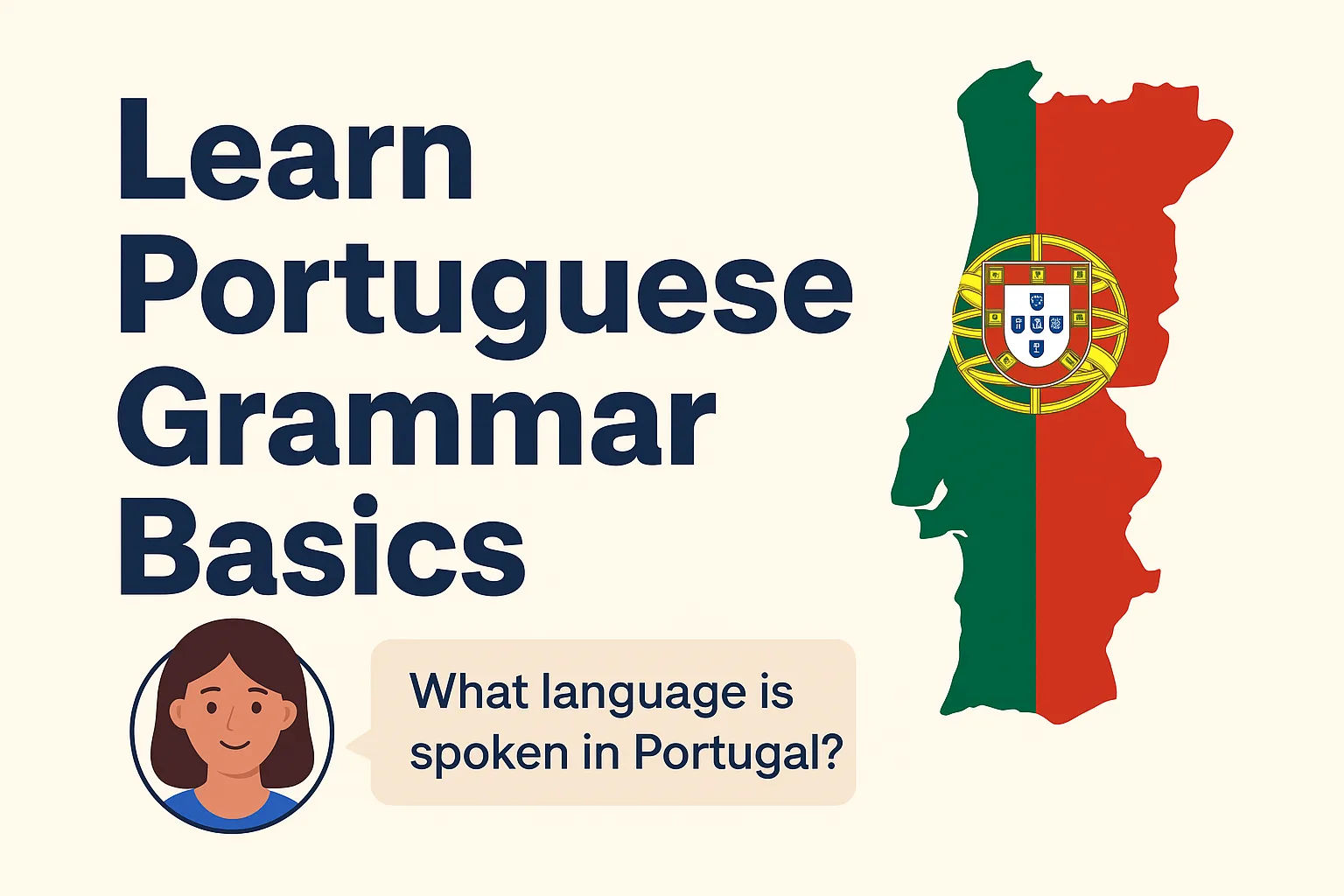
Learn Portuguese grammar, on the other hand, can feel like climbing a mountain — it is exciting and, at the same time, sometimes overwhelming. Moreover, Portuguese, the official language of both Portugal and Brazil, is one of the most spoken languages in the world. In fact, if you’ve ever asked yourself what countries speak Portuguese or wondered what language is spoken in Portugal, the answer is simple: Portuguese.
This guide will walk you through the basics of Portuguese grammar in a clear, simple, and human way. No heavy technical jargon, no complicated linguistic theories — just practical explanations with plenty of examples. Whether you’re learning for travel, business, or curiosity about the language of Portugal, this article is for you.
Why Learn Portuguese Grammar?
Learn Portuguese Grammar is like the backbone of a language. Without it, communication can be confusing. By learning the basics, you’ll:
- Understand how sentences are built.
- Communicate clearly in everyday situations.
- Appreciate the structure of the Portuguese language.
- Feel more confident speaking and writing.
Portuguese is a Romance language, like Spanish, Italian, and French. That means if you know one of these, you’ll see many similarities.
Portuguese as an Official Language
Before we dive into grammar, however, let’s first answer a common question: What countries speak Portuguese?
Portuguese is the official language in:
- Portugal
- Brazil
- Angola
- Mozambique
- Cape Verde
- Guinea-Bissau
- São Tomé and Príncipe
- East Timor (Timor-Leste)
In Portugal, the only official language is Portuguese (portugal official languages = Portuguese). However, in some regions, other languages exist, like Mirandese, spoken in the northeast.
👉 More on this here: Languages of Portugal.
So when people ask what language is spoken in Portugal, the answer is straightforward: Portuguese.
The Alphabet and Pronunciation
Portuguese uses the same alphabet as English (A–Z), with some extra attention to accent marks: á, é, í, ó, ú, â, ê, ô, ã, õ, ç.
Examples:
- Coração (heart) → pronounced koh-rah-sown.
- Maçã (apple) → pronounced mah-sahn.
Accents are important because they change meaning:
- avó (grandmother) vs. avô (grandfather).
Sentence Structure in Learn Portuguese Grammar
The basic word order is similar to English: Subject + Verb + Object (SVO).
👉 Examples:
- English: I eat apples.
- Portuguese: Eu como maçãs.
But Portuguese is flexible. Sometimes the subject can be omitted, because the verb ending shows who is doing the action.
👉 Example:
- Como maçãs. → I eat apples. (no need for eu because como already tells us it’s “I”).
Learn Portuguese Grammar – Nouns and Gender
In Portuguese, every noun has a gender: masculine or feminine.
- Masculine usually ends in -o:
- livro (book), carro (car).
- Feminine usually ends in -a:
- casa (house), porta (door).
👉 Tip: Articles tell you the gen




